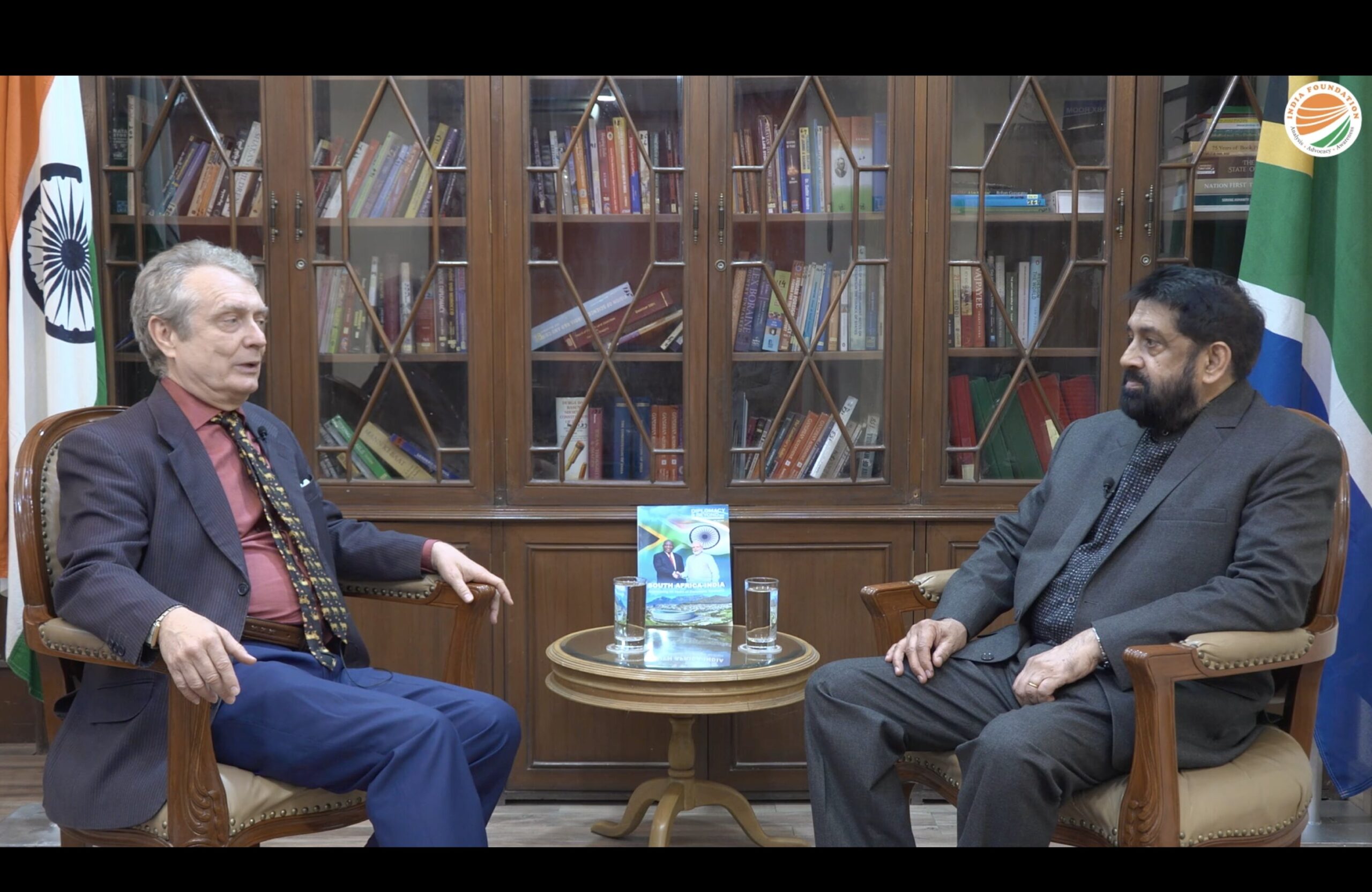In his first address to the members of both houses of the 16th Lok Sabha and Rajya Sabha, President Pranab Mukherjee outlined the BJP led NDA Government’s commitment of eliminating poverty. This was followed by Prime Minister Narendra Modi’s address to both the houses who reiterated that the, “the poor have the first right to the government’s resources”. Unlike the previous Prime Minister, Manmohan Singh, who stated that the government’s resources first belong to a specific community.
Cut to 2014, after the election of a stable government, the nation witnessed the synergized vision of both the President and the Prime Minister through their respective speeches. Having observed Prime Minister Narendra Modi during his Chief Ministership in Gujarat as well as during his election campaign, a discernable factor that comes across strongly is that his eyes are strongly set on the future while shaping the present. In order to drive towards his long term vision, short term goals are envisaged and designed.
Completing 100 days in office, the BJP led NDA Government has taken effective strides with an impetus on rural development to eliminate poverty.
Swachch Bharat by 2019
For the first time from the ramparts of Red fort on August 15, we witnessed a Prime Minister making sanitation a national issue. Ending open defecation is the first and the most essential step to fight and eliminate poverty. When Prime Minister Narendra Modi took over Gujarat in 2001, one of the decisive steps he took was to ensure adequate toilets were built specifically for girls in schools. Therefore it does not come as a surprise that the Prime Minister has urged MPs to contribute to building toilets for school girls through their Member of Parliament Local Area Development (MPLAD) funds.
Health experts will agree that cleanliness will not only contribute to end innumerable diseases but also to tackle the silent epidemic of malnutrition. Notably, the mission to end open defecation for a clean India by 2019 as a tribute to Mahatma Gandhi found an unusual backer in Jairam Ramesh, former Rajya Sabha MP from the Congress and Rural Development Minister, who said “I have been saying that making India open defecation free should be a national junoon, a national obsession, now Mr. Modi is taking that forward with his Swachch Bharat Mission.”
Sansad Adarsh Gaon Yojana
Apart from contributing to policy making through legislations, MPs now have an important responsibility, i.e., to develop one village in his or her constituency into a model village. Though complete details of this programme is awaited on October 11, Jai Prakash Narayan’s birthday, the vision behind the programme is that MPs have to develop one village a year, or five during a full parliamentary term. The scheme, though launched this year, will be fully operational only in fiscal 2015-16, and after 2016, “a parliamentarian should develop two more villages by 2019.” Clearly the programme is envisioned to ensure MPs are rooted to their constituencies. In the socio-political set up in India, examples are galore of those leaders who were not rooted to their constituencies being uprooted by the people. In that sense, Sansad Adarsh Gaon Yojana is a welcome move.
Reinventing MGNREGA
Reinventing Mahatma Gandhi National Rural Employment Guarantee Act (MGNREGA) as a productive programme reiterates the government’s commitment to the poor. The UPA government initiated MGNREGA in order to provide 100 days of employment per person in rural areas. Instead of disbanding the programme, the BJP led NDA government came out with guidelines and budgetary provisions to reinvent the programme. The government has reinvented MGNREGA with two key objectives; one is to provide employment as promised, and two is to ensure that the programme enables creation of assets which the villages can later acquire. Anyone nuanced with rural development will know this is an incredible value addition and a big plus.
‘Poor first’ at WTO
In his meeting with US Secretary of State John Kerry, Prime Minister Modi stated that one of the biggest challenges in front of his government was to tackle poverty and he believed that it’s the Governments’ duty to address the problems faced by the people belonging to deprived sections. These words to John Kerry came soon after India vetoed the passage of the World Trade Organization’s first trade facilitation agreement. At the very outset, the Government was clear that ensuring food for its people is a priority. True to this, the Indian government sought permanent protection to its food subsidies from WTO caps, which incidentally found no takers. This was after; India reiterated that the grains procured to fight hunger shouldn’t be included under WTO restricted subsidies.
And guess what, surprisingly, India’s decision was vindicated when a UN body, the International Fund for Agriculture Development (IFAD) backed its decision. IFAD maintained that ensuring food for its people is of significant importance to a nation.
Ensuring Purchasing Power through Jan Dhan Yojana
During his campaign prior to Lok Sabha elections, Prime Minister Narendra Modi had emphasized that one of the most vital duties of his government will be to ensure purchasing power to the poor. Yes purchasing power to the poor, and this was rarely highlighted or for that matter discussed or debated by the media.
Successive governments have promised financial inclusion, but till date none have translated their words into action. Banks have just not been able to expand their facilities in rural areas; there are numerous cases where women have to travel close to 80-90 kms to reach their banks from their villages.
Jan Dhan Yojana is an apt of example of not just financial inclusion of the deprived sections of the society but also ensuring these sections have access to banking facilities as well. Broadly, Jan Dhan Yojana aims to ensure purchasing power to the poor, imbibe the habit of savings, and lastly weed out corruption, as there will be no intermediaries involved.
Empowering villages through Digital India
Some of the words which come to our mind when we ask someone about infrastructure development include development of roads, ports, and airports to name a few. But rare are the governments which have been focused at connecting every village with optical fibre networks. ‘Move from High ways to Information ways’, this is the precise vision with which the BJP led Government has embarked on the much acclaimed Digital India programme. The programme seeks to prepare India for a knowledge future.
The aims of the programme include, developing a digital infrastructure which can deliver can government services, a real time financial transaction platform for citizens, and to digitize all documents. The Government has enlisted specific targets, which is to ensure broadband connectivity to 2.5 lakh villages and making as many schools Wi-Fi enabled by 2019. With the Government’s intentions being to develop states in order to develop India, the ambitious goal of delivering all government services in less than four years seems prospective and definitely achievable.
In one of his notes left behind in 1948, Mahatma Gandhi said, “I will give you a talisman. Whenever you are in doubt, or when the self becomes too much with you, apply the following test. Recall the face of the poorest and the weakest man or woman whom you may have seen, and ask yourself, if the step you contemplate is going to be of any use to him or her. Will he or she gain anything by it? Will it restore him or her to a control over his or her own life and destiny? In other words, will it lead to freedom for the hungry and spiritually starving millions? Then you will find your doubts and yourself melt away.” In these 100 days, what is clearly discernible is the BJP led NDA Government under Prime Minister Modi has thought through the aforesaid test to design and reinvent programmes to eliminate the menace of poverty.
The article is written by Sudarshan Ramabadran. He is a Research Assistant at India Foundation. The views expressed are his own.




